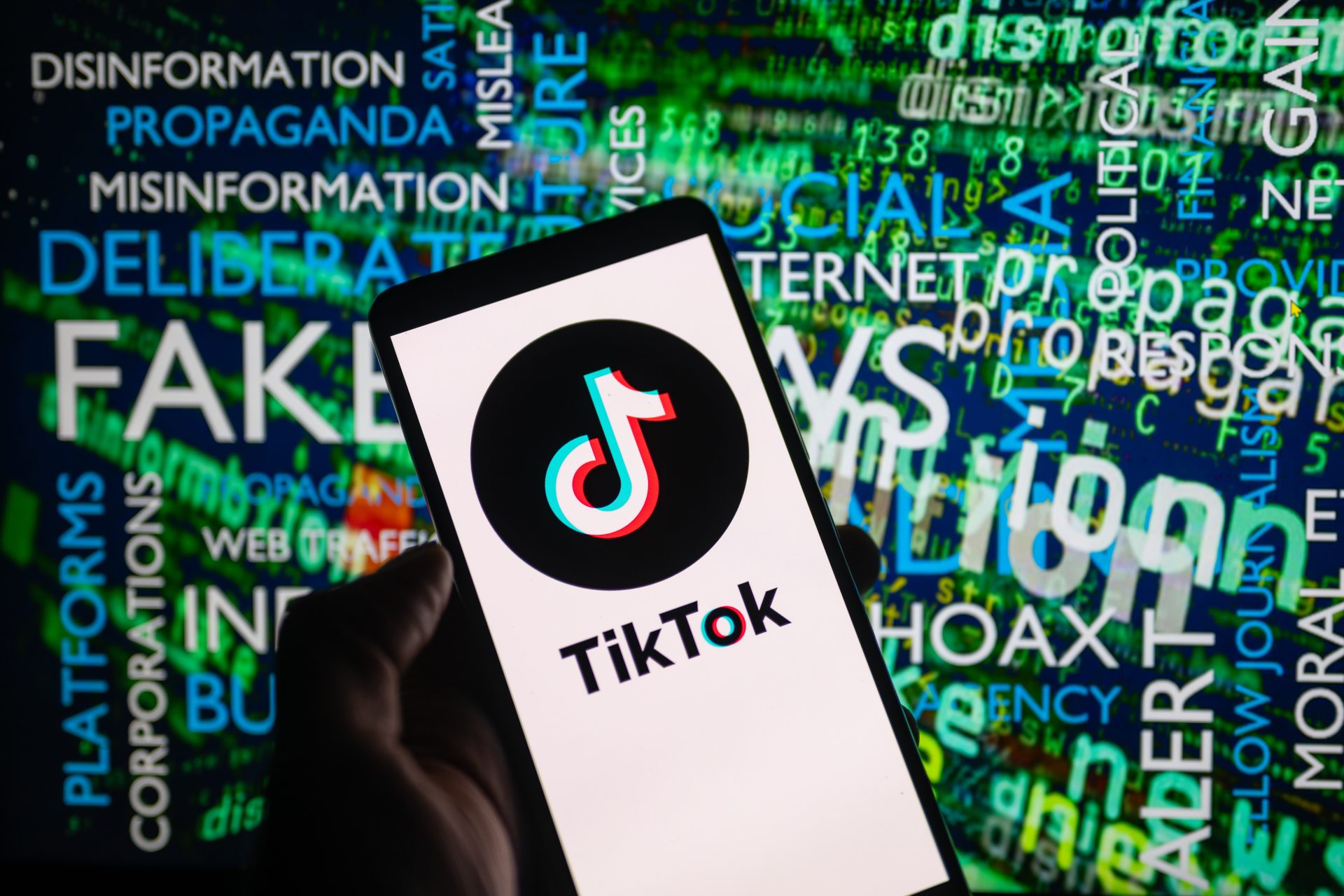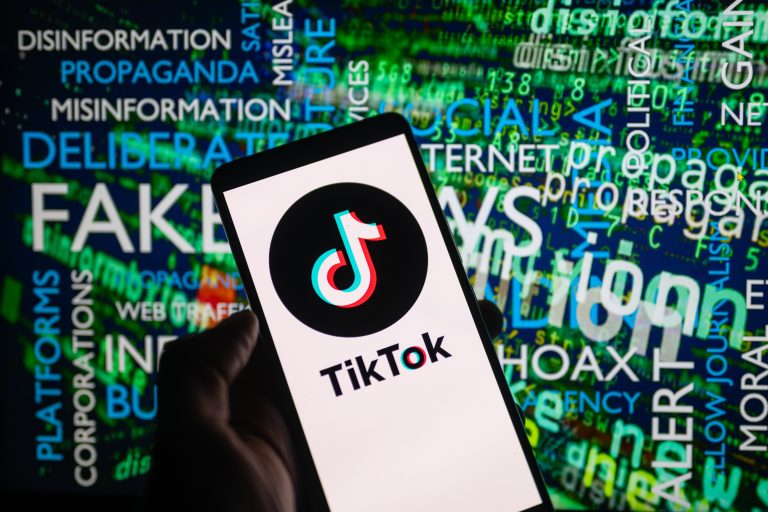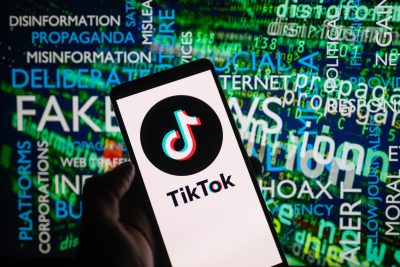Iulia Stănoiu (Context.ro)
Illustration: Shutterstock 2024-12-19
Iulia Stănoiu (Context.ro)
Illustration: Shutterstock 2024-12-19
TikTok, other social media platforms, and paid advertisements helped propel Romanian far-right presidential candidate Călin Georgescu to a surprising victory in the first round of the election. Here’s how it happened.
Romanian intelligence services have uncovered an extensive coordinated TikTok campaign that dramatically influenced the first round of presidential elections. According to declassified documents, over 25,000 accounts participated in the campaign, which led to an unprecedented surge in support for far-right candidate Călin Georgescu — from 5% to 23% in just three weeks. The scale of manipulation, particularly on TikTok, was so significant that Romania’s Constitutional Court ultimately nullified the election and ordered a new vote.
The operation employed a sophisticated network of influencers, coordinated hashtags, and an elaborate financing system, including $381,000 in payments for sharing video content and hashtags. The campaign targeted Romania’s nine million TikTok users — nearly half of the country’s adult population. Despite this extensive (and expensive) campaign, Georgescu officially reported zero campaign expenses to the Electoral Supervisory Commission.
An investigation by Context.ro revealed that TikTok wasn’t the only platform utilized. Journalists discovered a network of 18 additional websites that coordinated to publish pro-Georgescu articles and distribute them through paid Facebook advertising. These sites are connected to the Alliance for Romanian Unity (AUR), a far-right party supporting Georgescu.
TikTok’s Dominance in Romania
TikTok has become remarkably popular in Romania, rivaling Facebook as the country’s most-used social network. Current research shows that TikTok matches Facebook’s user base of approximately nine million users and is projected to become Romania’s leading social platform this year. Nearly half of adult Romanians use TikTok, spending over 30 hours monthly on the platform — the highest engagement rate among all social networks. The platform’s Romanian demographic skews older compared to countries like the Czech Republic, where TikTok’s roughly two million users are predominantly under 34.
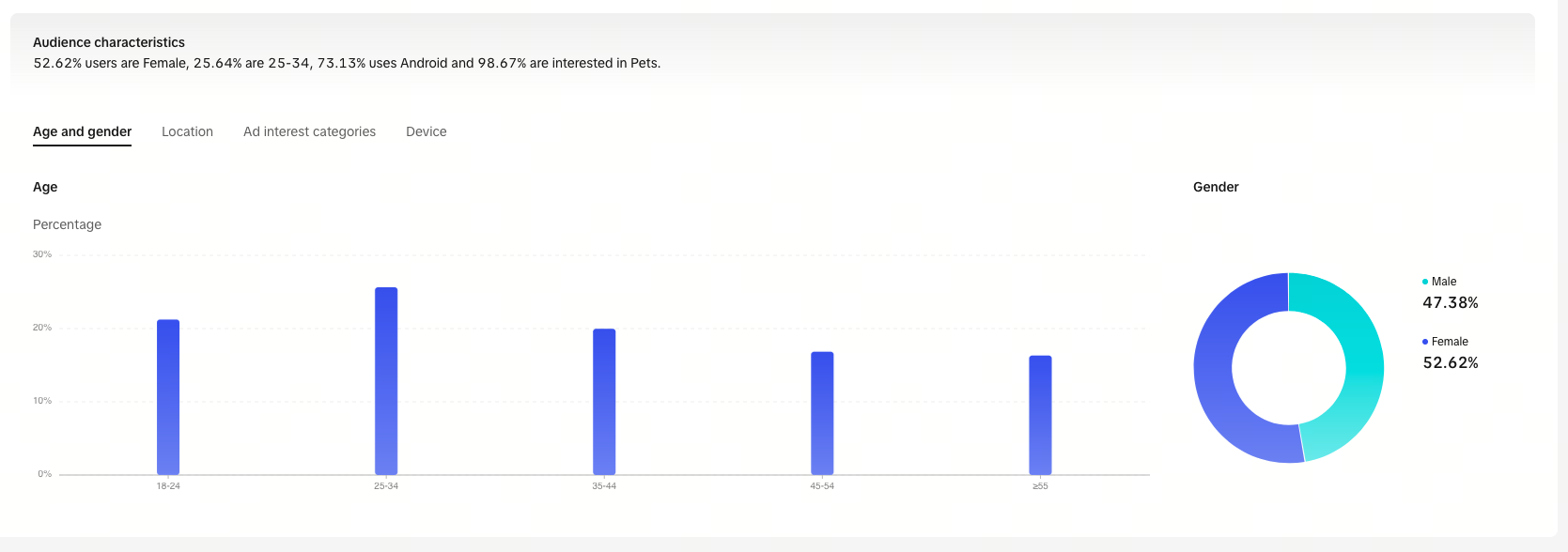
Unprecedented Electoral Shift
Early November 2024 polls showed minimal support for Georgescu. However, after just three weeks, he secured victory in the first round with nearly 23% of the vote. This dramatic shift sparked intense reactions across Romania, leading to widespread demands for an investigation.
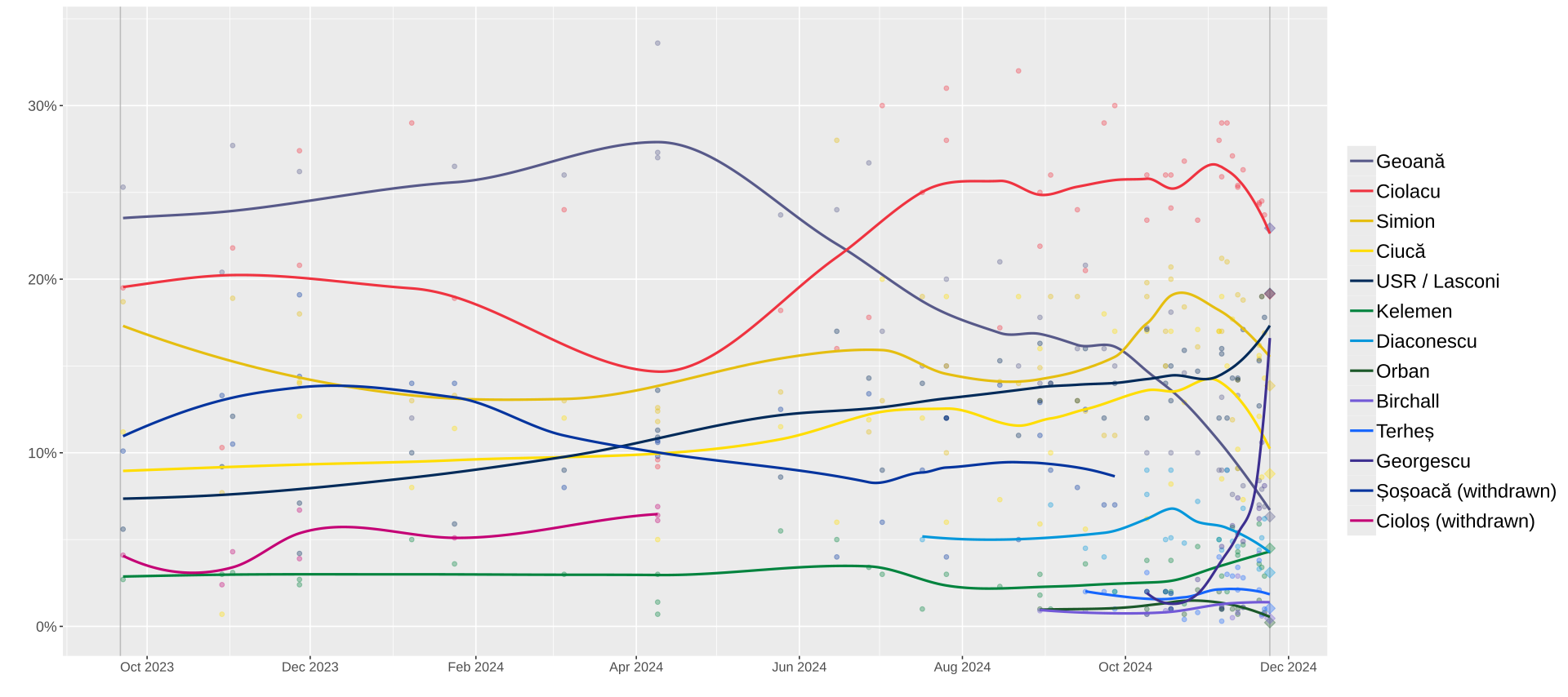
According to pollster INSCOP Research, Georgescu’s strongest support came from the age groups most active on TikTok. The way the campaign was conducted raised numerous questions about its nature and execution.
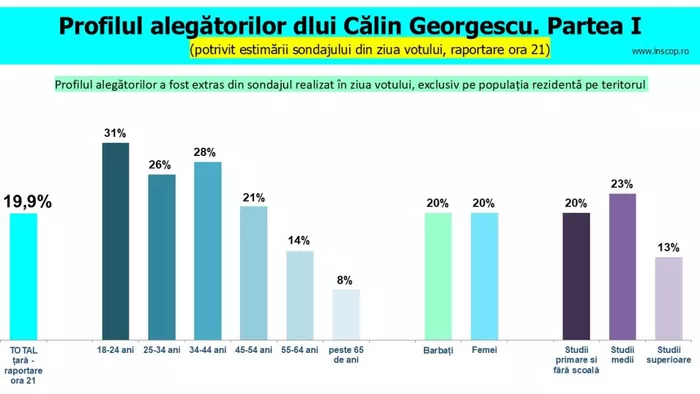
Following complaints from two unsuccessful candidates, Romania’s Constitutional Court initially validated the first round results on December 2, after a partial vote recount, and confirmed the second round would proceed.
However, on November 29, the country’s Supreme Defense Council (CSAT) convened to discuss potential foreign interference in the electoral process. While the meeting’s conclusions weren’t immediately public, Romanian President Klaus Iohannis ordered the release of CSAT’s documents the day after the court’s initial decision. This prompted the Constitutional Court to reconvene, ultimately leading to the complete annulment of the election on December 6.
The Court justified its decision by stating that “irregularities and electoral law violations pervaded all stages of the process, compromising the free and fair nature of citizen voting, candidate equality, and campaign transparency, including violations of campaign finance regulations.”
Georgescu denounced the court’s decision as a “coup d’état.” His opponent, Elena Lasconi, also expressed dissatisfaction, characterizing the situation as an “assault on democracy.”
Călin Georgescu has asked the court to annul the decision of the Central Electoral Bureau to rerun the presidential elections— that is, he asked that the initial election’s results be allowed to stand. Georgescu was present in the courtroom on December 16, and on his way out he said that “the law needs to be law for everyone and respect the will of the Romanian people. We need to return to the initial phase where we left off.”
The Russian Connection
The released documents detail intelligence services’ findings about the pro-Georgescu social media campaign and suggest links to Russia. The influence operation reportedly involved approximately 25,000 TikTok accounts that intensified their activity two weeks before the election. Each account used unique IP addresses to avoid detection as a botnet. The operation also activated 797 dormant accounts that were created in 2016 but remained largely inactive until November 11, 2024.
Coordination occurred outside TikTok, primarily through channels like the Telegram account @propagatorcg, which provided specific instructions about message promotion, emoji usage, and methods to circumvent TikTok’s verification systems.
The campaign utilized coordinated hashtags (#echilibrusiverticalitate, #diaspora, #calingeorgescu, among others) and leveraged both major influencers and micro-influencers. Content creators followed pre-written scripts and synchronized their publishing schedules, resulting in coordinated waves of content that effectively bypassed TikTok’s algorithms to reach wider audiences.
Intelligence services also documented the campaign’s financing, identifying a user “bogpr” — linked to Bogdan Peschir, a 36-year-old programmer involved in cryptocurrency operations — who distributed $381,000 to various TikTok users. Some content creators were recruited by FA Agency, a South African firm offering up to $1,000 per video. The campaign also utilized Fame Up, an app connecting brands with micro-influencers. Peșchir made donations on TikTok from his “bogpr” account amounting to more than one million euros
Several TikTok influencers have been summoned for hearings in the investigation into Călin Georgescu’s campaign. Authorities are also conducting computer searches in the case of the alleged financier of Georgescu’s campaign, and have already seized seven million dollars from Peschir.
Romanian intelligence services noted striking similarities between this operation and Russian influence campaigns, particularly the “Brother by Brother” campaign in Ukraine, which employed similar micro-influencer manipulation tactics.
While the campaign attempted to circumvent TikTok’s regulations, Romanian authorities also identified several serious failures by the platform itself. Documents reveal that despite TikTok’s assurances to the Permanent Electoral Office (AEP) about removing problematic content, the posts remained visible in other countries and continued circulating. Additionally, TikTok’s algorithm categorized explicitly political content from Georgescu-affiliated accounts as entertainment, allowing its distribution even during election day. Romanian officials also criticized TikTok’s failure to identify and restrict the campaign’s coordinated nature.
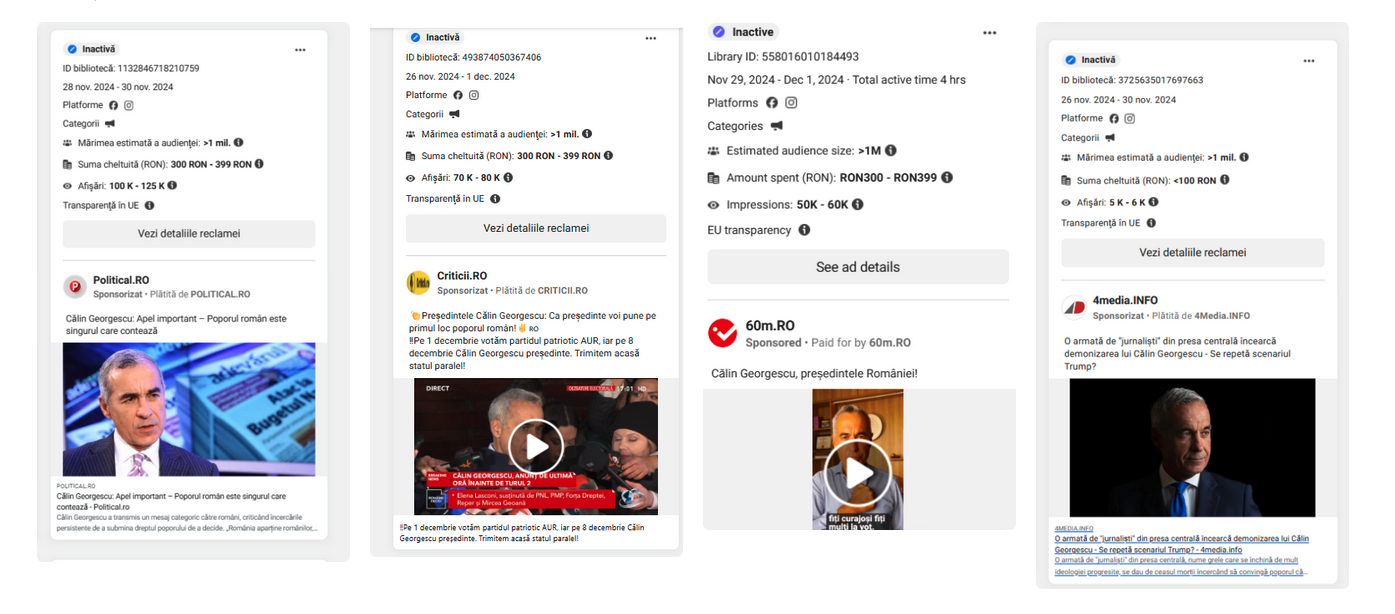
TikTok rejected these accusations, telling Context.ro that reports about the Romanian election were misleading, noting that most candidates maintained TikTok presences and campaign across multiple platforms. The company emphasized its commitment to enforcing election misinformation policies and collaboration with Romania’s Electoral Commission.
On December 5, EU Commissioner for Technical Sovereignty, Security and Democracy Henna Virkkunen issued an order to preserve all data and evidence related to both the Romanian election and upcoming EU elections, describing it as crucial for ongoing investigations.
Broader Campaign Network
Context.ro’s investigation revealed TikTok was just one component of a larger operation. Their analysis of 22 websites linked to the far-right AUR party found that most ran unlabeled paid election campaigns, which continued even after the official campaign period ended. Eighteen of these pages, which masqueraded as news portals, promoted Georgescu while attacking his opponents through Facebook advertising. While one site’s domain registration has expired, its social media presence remains active and continues to run advertisements.
Despite Georgescu reporting zero campaign expenses to the AEP, AUR-affiliated websites spent 46,000 euros promoting him between November 26 and December 2 alone.
Pavel Popescu, vice president of the National Authority for Communications Administration and Regulation (ANCOM), called for suspending TikTok in Romania until investigations conclude. While the European Digital Services Act (DSA) allows for such measures in cases of non-compliance, European Commission Digital Economy spokesperson Patricia Poropat has emphasized that this is intended as a last resort. The DSA permits temporary service suspension only after exhausting all other enforcement options and demonstrating serious harm or criminal threats to life or safety.
More than 20 Romanian non-governmental organizations have published a joint open letter to the European Commission, in which they underline the responsibility of social media platforms to comply with the Digital Services Regulation (DSA). The organizations have raised particular concerns that, although TikTok bans paid election advertising, it has not deleted accounts that were promoting a candidate using almost identical discourse to that of the campaign.
Tereza Meravá, spokesperson for the Czech Telecommunications Office, explains that Romania’s digital services coordinator could implement a temporary TikTok ban using the DSA’s “red button” provision. However, this would require first exhausting other remedies like cease-and-desist orders and fines. Even then, initial restrictions would be limited to four weeks, though extensions are possible.
Attorney Jiří Císek, speaking to investigace.cz, noted this process remains untested, likely requiring months to implement. He emphasized that the DSA’s strict requirements protect against potential abuse of these powers by maintaining free speech safeguards, particularly relevant given concerns about democratic backsliding in countries like Hungary and Slovakia.
On December 17, the European Commission has opened formal proceedings against TikTok for a suspected breach of the Digital Services Act (DSA) in relation to TikTok’s obligation to properly assess and mitigate systemic risks linked to election integrity, notably in the context of the recent Romanian presidential elections on November 24, according to a press release.
The article was originally published on Investigace.cz.
Subscribe to “Goulash”, our newsletter with original scoops and the best investigative journalism from Central Europe, written by Szabolcs Panyi. Get it in your inbox every second Thursday!
Josef Šlerka has worked as a data analyst and reporter at Czech Centre for Investigative Journalism since 2021. He used to head the Czech Fund for Independent Journalism (NFNZ). He is also the head of the Department of New Media Studies at Charles University in Prague.

